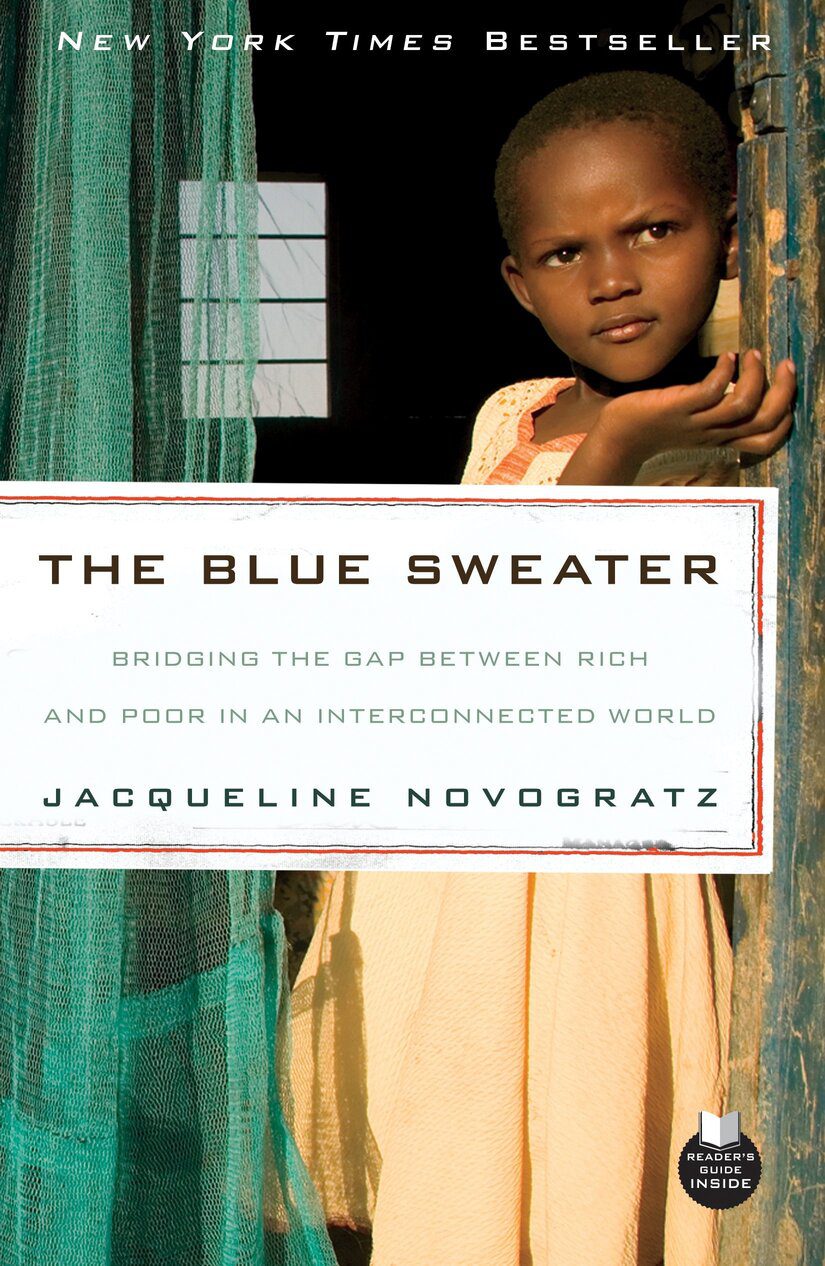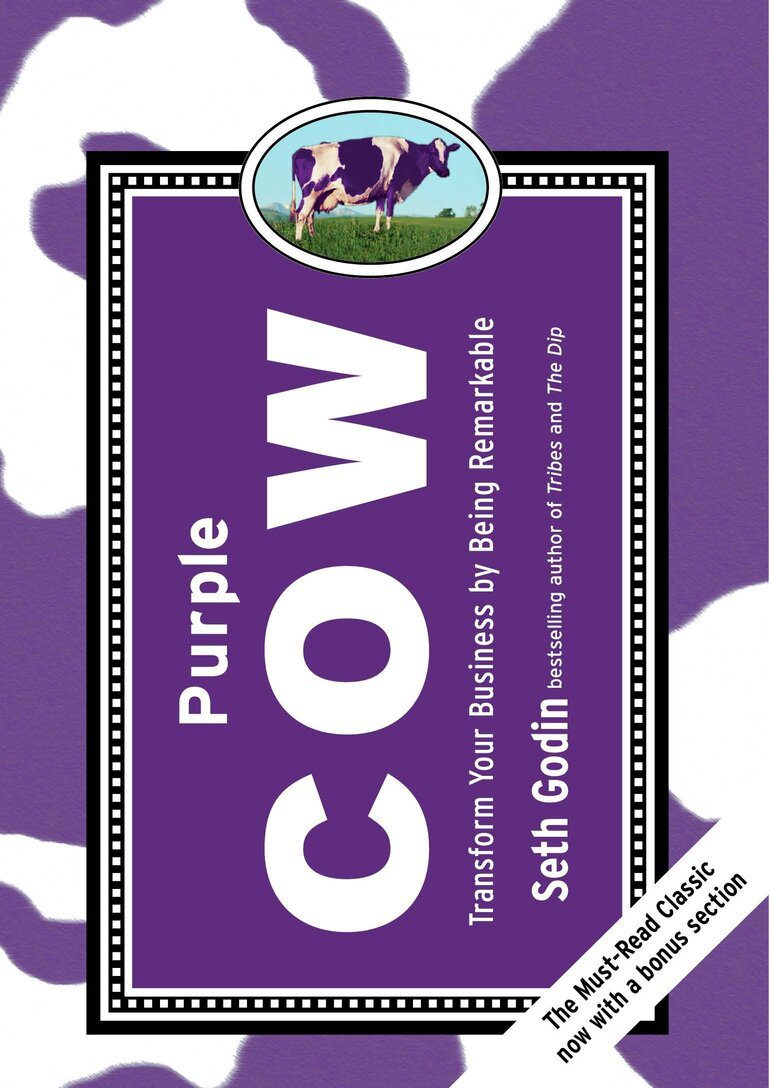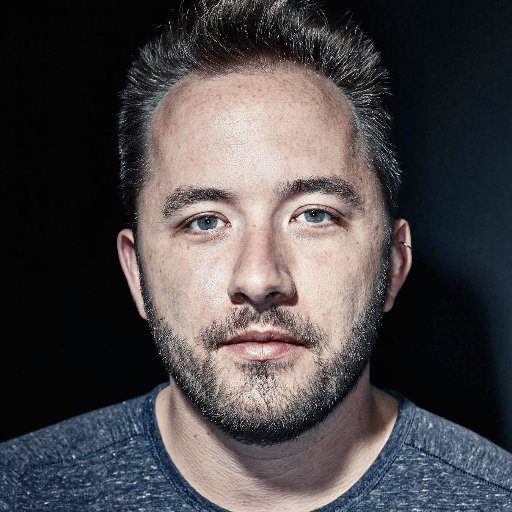“Hope is a path on the mountainside. At first there is no path. But then there are people passing that way. And there is a path.” -LU XUN
Print | Kindle(eBook) | Audiobook
Jacqueline’s story is an inspiring and refreshing story on starting a sustainable nonprofit organization. She takes the reader on a journey of persistence, adventure across Africa, understanding poverty & world views, becoming passionate about your project, delivering a new model for empowering and funding sustainable projects. She shares heartwarming stories about forming a long-lasting bond with the community she was trying to serve, the need to listen, and determination to get things done against all odds.
Jacqueline Novogratz founded Acumen, a non-profit global venture capital fund whose goal is to use entrepreneurial approaches to address global poverty.
Jacqueline Novogratz left a career in international banking to spend her life on a quest to understand global poverty and find powerful new ways of tackling it. From her first stumbling efforts as a young idealist venturing forth in Africa to the creation of the trailblazing organization she runs today, Novogratz tells gripping stories with unforgettable characters. She shows how traditional charity often fails, but how a new form of philanthropic investing called “patient capital” can help make people self-sufficient and can change millions of lives.
“If you don’t like the way the world is, you change it. You have an obligation to change it. You just do it one step at a time.” -MARIAN WRIGHT EDELMAN
“Poverty won’t allow him to lift up his head; dignity won’t allow him to bow it down.”-MADAGASY PROVERB
Here are my favourite takeaways from reading, The Blue Sweater: Bridging the Gap Between Rich and Poor in an Interconnected World by Jacqueline Novogratz:
The Nudge
- While Jacqueline was in Africa, she saw some of the worst that good intentions, traditional charity, and aid can produce: failed programs that left people in the same or worse conditions.
Acumen Fund
- To address poverty in a more insightful way, in 2001 Jacqueline started a nonprofit organization called Acumen Fund. raise charitable funds, but instead of using the money for giveaways, the organization make careful investments in entrepreneurs who are willing to take on some of the world’s toughest challenges.
- Acumen seeks entrepreneurs that have the vision to deliver essential services like affordable health care, safe water, housing, and alternative energy to areas where governments or charities are often failing. Acumen Fund measures the results in social as well as financial terms and share lessons and insights learned with the greater world.
“There are only two mistakes one can maize along the road to truth; not going all the way, and not starting.”-BUDDHA
The Blue Sweater – Interconnectedness of the World
The Blue Sweater refers to an encounter she had in Kigali, Rwanda. Jacqueline spotted a boy wearing a blue sweater. She recognized it as a sweater she had owned and given to Goodwill a decade earlier; it was hers, with her name on the tag. The encounter was an epiphany for Novogratz; her sense of the interconnectedness of our world has continued to influence her current work.
The Issues and Jacquline’s changing worldview:
Encounter with Veronique
“As was the case in a number of African countries at the time, Rwandan law prevented women from opening a bank account without their husbands’ written permission, Veronique explained. The country was still governed by the Napoleonic Code, a colonial holdover written in 1804 that gave women the status of minors and the mentally impaired. The idea of women borrowing money on their own terms was simply out of the question. Only recently had Veronique and other leaders made any movement on the issue at all.”
Unachieved Potential – The African Story
“As the plane flew into Entebbe Airport, I looked out the window at its green lushness, thinking of Winston Churchill’s words that this was “the pearl of Africa.” But minutes after landing, all I could see were guns in the hands of young boys, bombed-out buildings, streets filled with potholes and broken glass. I wondered how a nation could plunge so quickly from being a paragon of success to becoming a cauldron of despair. Twice young boys dressed in fatigues and carrying machine guns stopped Cissy and I for “routine checks,” searching bags and looking through the trunk of Cissy’s car.”
Compassion is not enough
“I finally understood: In order to contribute to Africa, I would have to know myself better and be clearer about my goals. I would have to be ready to take Africa on its own terms, not mine, and to learn my limits and present myself not as a do-gooder with a big heart, but as someone with something to give and gain by being there. Compassion wasn’t enough”
Listening: The Blue Bakery
“After more than 8 straight hours of painting, we were finished. I joined the women outside in the street to look at what we’d accomplished. We were hot and hungry and covered in blue. For a minute we didn’t say a word. It was so beautiful. The color was perfect, I said. Most of the heads around me nodded in agreement-except for that of Gaudence.
I looked at her as she sucked in her breath. “What?” I asked with my eyes. She whispered to Prisca, who shook her head slowly. “What?” I asked again, one eyebrow raised.
“She thinks it is very nice,” Prisca translated, “but you know, Jacqueline, our color is green.”
Gaudence had been the only one courageous enough to tell the truth about the paint color, but she’d waited until it was too late. We all agreed that the color of the bakery would have to be blue-but the women would continue wearing their green gingham uniforms for contrast.
I walked home alone from Nyamirambo that evening, covered in paint, feeling tired, elated, and also perplexed that I’d tried so hard to listen and still ended up choosing the wrong color. On one hand, I hadn’t wanted to wait for months until the women made a decision.
On the other, I began to understand that I could have listened better, for listening is not just having the patience to wait, it is also learning how to ask the questions themselves. People who’ve always been dependent on others for some kind of charity or goodwill often have a hard time saying what they really want because usually no one asks them. And if they are asked, the poor often think no one really wants to hear the truth. I had to admit to myself that I was still building trust.
Listening is not just having the patience to wait, it is also learning how to ask the questions themselves.
“The story of the bakery was one of the human transformation that comes with being seen, being held accountable, succeeding. I had the privilege of watching the women acquire a sense of dignity once they were given tools for self-sufficiency, and I learned that language is perhaps only half the equation in how people communicate with one another. I discovered the power of creating a business with real accountability. And I learned to be myself and to laugh at myself, to share in the women’s successes, and, maybe most importantly, to listen with my heart and not just my head.”
It is said that three kinds of people come to Africa: missionaries, mercenaries, and misfits. Regardless of labels, there was something about being part of a tiny, privileged elite that ultimately wasn’t good for anyone.
- Like the volcano, Africa can stun you in an instant. It can throw floods and drought and disease at you, sometimes all at the same time. In the next moment, it will tease you with its magnificent beauty, so even if you don’t forget, you can find a way to forgive. Ultimately, it keeps you coming back for more.
“We are made wise not by the recollection of our past, but by the responsibility for our future.” – George Bernard Shaw
Rwandan Genocide
- “Love lies at the base of our common humanity. In parts of Africa, people say “I am because you are.” Hindus in India greet one another with “Namaste,” or “I bow to you,” though spiritual leaders also interpret this as a way of saying that the God in me recognizes the God in you. War brings out the best and the worst in humanity, and genocide is no different. People killed one other by turning neighbors into “cockroaches” and nonhumans. But ordinary Rwandans also risked death to help one another. Sometimes-often-the same person did both.”
- “In the end, goodness triumphs over the bad. It is our challenge to do good and to serve others without waiting for the good to be returned. I’m convinced that those people who cultivate universal love will have good fortune on earth. In serving others, I found light in a place of utmost darkness.”
THE COST OF SILENCE
“In the end, we will remember not the words of our enemies, but the silence of our friends.”-MARTIN LUTHER KING, JR.
- The West wants easy answers for modern atrocities that revolve around ancient tribal hatreds, international aid gone astray, or political corruption. The real world does not oblige. Clearly, perpetrators must be held accountable for their actions, and justice must be done for victims for everyone in the country to heal.
- At the same time, our world’s challenge is not simply in determining how we punish, but instead in how we prevent the kinds of atrocities that can come only from a deep-seated fear of the Other in our midst. Such fear is fueled in a world where the rich feel above the system and the poor feel entirely left out.
Lesson from a Genocide Survivor
“I asked her what she had learned since I’d last seen her.
- “Before everything happened,” she said, “my family and I had everything: a big house, two cars, four beautiful children, wealth, status, and even the title of being a parliamentarian. And then we lost everything. I was imprisoned, our things were taken, but most important, two of our children disappeared in the march back from the refugee camps. We never saw them again.”
- She went on to say that her time in prison was terrible for her, but it also was a time that allowed her to reflect on what was important and to develop a deeper faith inside herself.
- “When you have everything,” she went on, “you start to think that material things are most important. When you lose them all, at first you think you have lost yourself, as well. But with faith, you begin to see that it is only those things that you build inside-those things that no one can take away from you-that matter. Now we try to live from a place of love. And we understand that you can only have great joy if you also know great pain.”
“When you have everything, you start to think that material things are most important. When you lose them all, at first you think you have lost yourself, as well. But with faith, you begin to see that it is only those things that you build inside-those things that no one can take away from you-that matter.”
All the best in your quest to get better. Don’t Settle: Live with Passion.



1 Comment
Pingback: 50 Audiobooks listening Challenge 2020 – Lanre Dahunsi